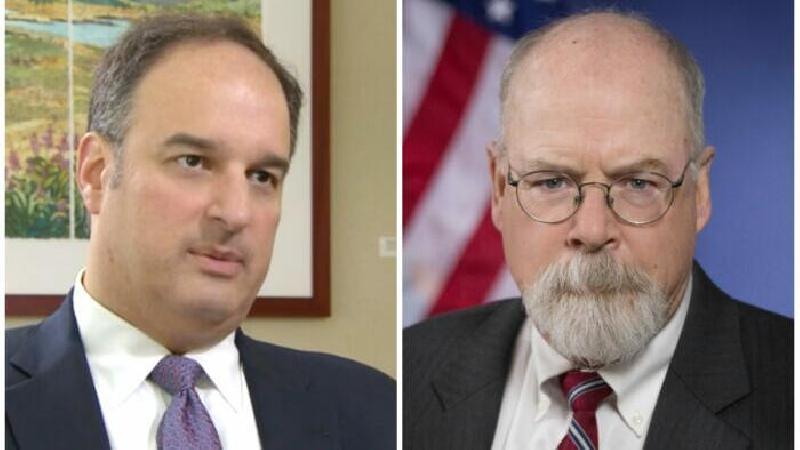The lawyer charged with hiding his work for the Clinton campaign from the FBI filed a motion requesting that special counsel John Durham not be able to use a Hillary Clinton Twitter post that made reference to alleged Trump–Russia collusion claims.
Durham wrote last week that he wanted an October 2016 Twitter post from the Clinton campaign that promoted an allegation that there was a secret backchannel between the Trump Organization and a Russian bank. The campaign’s lawyer, Michael Sussmann, was charged last year with lying to the FBI by allegedly stating that he wasn’t working on behalf of any client when he pushed the Trump-Russian bank claim to then-FBI General Counsel James Baker.
On Oct. 31, 2016, Clinton wrote on Twitter: “Donald Trump has a secret server … It was set up to communicate privately with a Putin-tied Russian bank.” She later wrote that “computer scientists have apparently uncovered a covert server linking the Trump Organization to a Russian-based bank.”
The claims about the alleged secret backchannel between the bank, reportedly identified as Alfa Bank, and former President Donald Trump’s business were ultimately refuted by the FBI.
Durham also sought to preserve a Twitter post from Clinton’s campaign that included a lengthy statement from former adviser Jake Sullivan, who now works as President Joe Biden’s national security adviser. “This could be the most direct link yet between Donald Trump and Moscow,” Sullivan claimed. “This secret hotline may be the key to unlocking the mystery of Trump’s ties to Russia.”
Last week, Durham argued that these Twitter posts are material because Sussmann “had communicated with the media and provided them with the Russian Bank-1 data and allegations” before articles on the claims were published. He also kept Clinton campaign staff “apprised of his efforts” while they “communicated with the Clinton Campaign’s leadership about potential media coverage of these issues.”
But Sussmann’s lawyers over the past weekend, in court, wrote that the Clinton campaign’s Twitter posts about the matter, including the Sullivan one, should not be preserved for Sussmann’s trial.
“The Tweet, which was posted on October 31, 2016, does not reveal anything about Mr. Sussmann’s state of mind over a month earlier, when he purportedly made the alleged false statement,” his attorneys wrote. “There is no evidence that Mr. Sussmann’s meeting with Mr. Baker had anything to do with the Clinton Campaign’s broader media strategy.”
They responded to Sullivan’s statement and touting of a Slate story on the Trump-Russian bank claim: “First, contrary to the Special Counsel’s misleading statement of the law, the Tweet is hearsay and it is plainly being offered for the truth: so that the Special Counsel can argue that the Campaign’s plan all along was to make a public statement about ‘federal authorities’ looking into the ‘direct connection between Trump and Russia.’”
“Second, the Tweet—which Mr. Sussmann did not author, issue, authorize, or even know about—is irrelevant, prejudicial, and would only confuse and distract the jury from the single false statement charge it must decide,” they continued.

